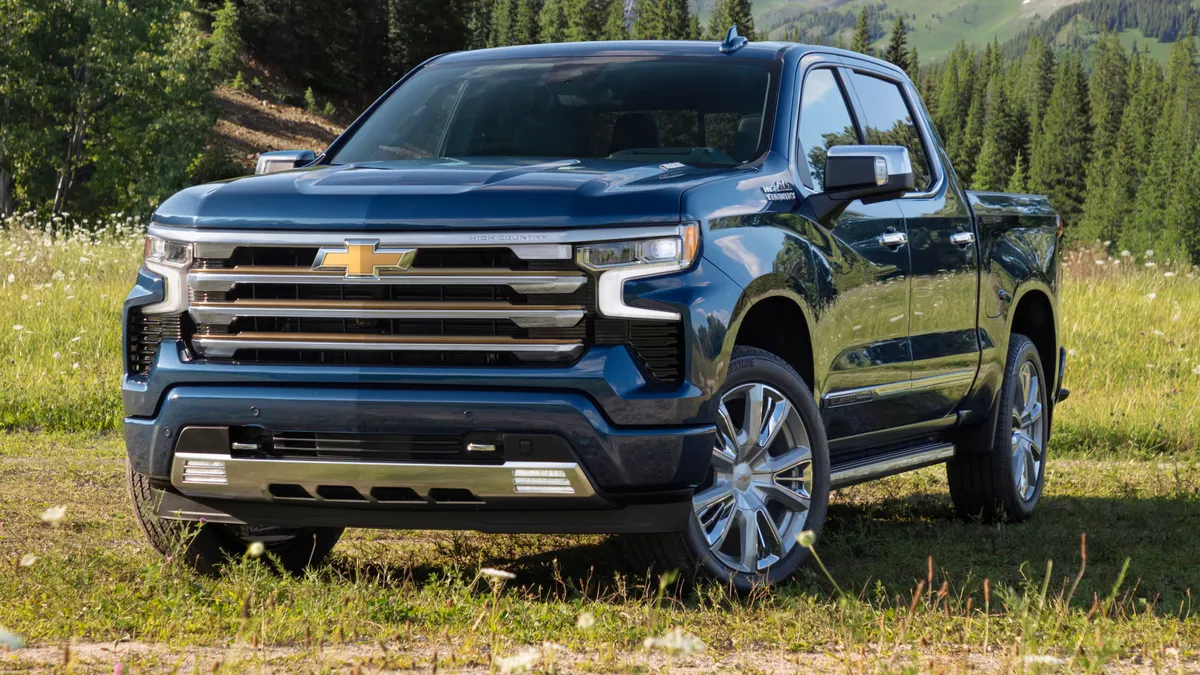Editor's note: This story is part of the WardsAuto digital archive, which may include content that was first published in print, or in different web layouts.
As modern society has advanced, we’ve become keenly aware of how our technological advancements affect the planet. Consuming tangible resources can be increasingly troublesome.
Once cars began rolling off assembly lines, we saw the potential and the power of easy, accessible and affordable transportation. Since then, we’ve also seen the impact this has had on the planet.
The same could be said for blockchains, which essentially are what make cryptocurrency possible. Each link in the chain is a recording of that piece of currency’s history. The links together form the blockchain, creating a digital ledger of everywhere the currency has been.
Blockchains are verified by users called “miners” who validate each block in the chain through computational analysis. The work is tedious and taxing, for both people and the resources they use to get the job done. The process itself takes up a lot of computational power which means higher demands on local power grids.
In fact, one recent study found blockchain technology requires more electricity than the entire country of Argentina.
Environmental costs are a given when it comes to modern technology, but an increasingly well-informed customer base expects companies to step up to the challenge of being environmentally sound, or even “carbon neutral” as the rhetoric goes today.
As both electric vehicles and cryptocurrency develop and evolve, they are touted as being clean and green options in their respective fields. If the past is meant to teach us lessons, then it’s a good idea for us to examine the power behind EVs and cryptocurrency and balance that with their environmental impact.
Mining for Bitcoin may not require drilling or excavation, but it still exacts an environmental cost. A study published in 2020 examined the “economic damages of air pollution emissions and associated human mortality and climate impacts” from the cryptocurrency mining process. The study found that, as of 2018, for every dollar of cryptocurrency created there was a cost of $0.49 in “health and climate damages” within the U.S.
Similar issues can be found in the world of electric vehicles. When discussing the issues surrounding EVs, batteries almost always come up first. They are widely described as the “dirty side of green energy.” The metals needed to create batteries, such as lithium and cobalt, need to be mined or otherwise extracted from the earth.
Any car that runs on electricity will need to be charged regularly. How green or eco-friendly it is ultimately depends on how eco-friendly the national power grid is. Until the national power grid is converted to a renewable energy resource, even the cleanest-running car will pull its energy from coal-based energy. This also applies to the development, construction and maintenance of charging stations which need to be installed across the country.
While car companies are rushing to meet the anticipated demand for EVs, would-be consumers also have questions about how those companies will mitigate environmental impacts. Automakers such as Audi, Ford, General Motors and Volkswagen have pledged to stop producing combustion engines and are putting forth plans to achieve carbon neutrality by 2035 or 2040, but environmental groups say it may be too little, too late. They point out that the tipping point could come as early as 2030.
There’s also the issue of how companies are defining “carbon neutral.” Dan Becker, executive director of the Safe Climate Campaign, addressed the issue of carbon neutrality through cleaner technology versus carbon neutrality through offsetting initiatives.
“The worst thing about a car is what comes out of its tailpipe,” Becker said. “Carbon neutral could be wonderful for the planet if it means you’re dramatically reducing emissions, and less wonderful for the planet if it means you’re only (offsetting) the emissions by planting a bunch of trees in Guatemala.”
Too often, comparisons are drawn between older cars and new electric models, but this ignores the developments around gasoline cars in just the past few years. Cars rolling off assembly lines today emit about 1% of the emissions belched out from cars made just a few decades ago. Experts believe those emissions can be brought down even further, making the pollution contributed by private vehicles almost nothing when compared to other sources of air pollution.
The reality is that no matter how clean the energy, there’s going to be an environmental impact. And no matter how inclusive or egalitarian a currency is, there’s margin for error and exploitation.
Regardless of our political and ideological divides about global warming and climate change, the earth’s natural resources are precious and limited, and must be protected and conserved to the best of our capabilities. Companies of today and the future are and will continue to be expected to share this value and act on it virtuously.
Ryan Gerardi (pictured, above left) is editor and producer of the AutoConverse Mobility Tech & Connectivity Podcast. He also is founder and president of AutoBurst Media.




















